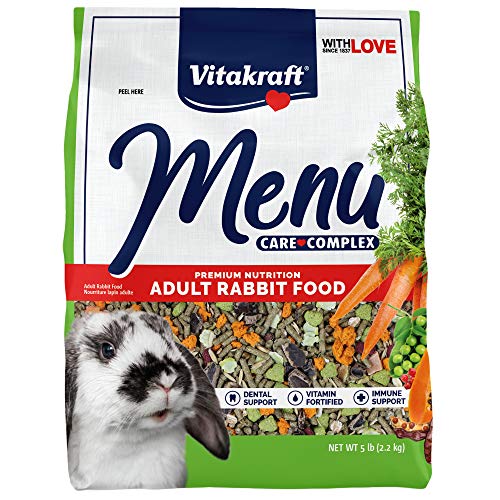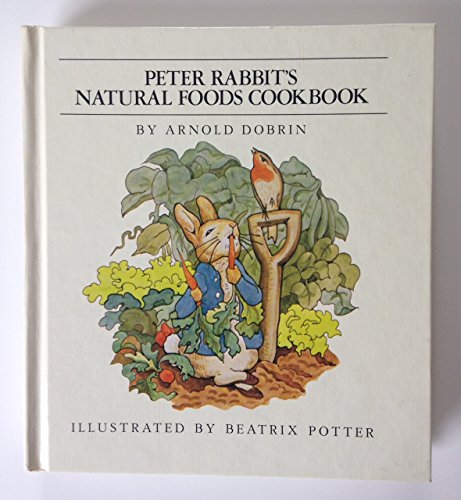Hello! My Champagne/NZW cross doe has just kindled for the first time and the total number of kits was 12.  My plan was to leave all the kits with her rather than trying to hand raise them. Its been a day & a half since she kindled, & so far everyone has survived though obviously some are thriving better than others. What sort of losses should I expect from this situation, & when is this likely to occur? I know nobody can predict what's going to happen with any given litter, but I hope someone else has dealt with a first timer having a supersized litter could share their experience. :thankyou:
My plan was to leave all the kits with her rather than trying to hand raise them. Its been a day & a half since she kindled, & so far everyone has survived though obviously some are thriving better than others. What sort of losses should I expect from this situation, & when is this likely to occur? I know nobody can predict what's going to happen with any given litter, but I hope someone else has dealt with a first timer having a supersized litter could share their experience. :thankyou:
You are using an out of date browser. It may not display this or other websites correctly.
You should upgrade or use an alternative browser.
You should upgrade or use an alternative browser.
1st litter with 12 kits! Expect losses?
- Thread starter Beylerbey
- Start date

Help Support Rabbit Talk Forum:
This site may earn a commission from merchant affiliate
links, including eBay, Amazon, and others.
Look at their tummies. If they are nice and round and full of milk, their chances for survival are good, even if they are tiny. If the tummies are flat and wrinkled, it may mean they are not getting enough.
Take a look at these pictures as a guideline...
fed-vs-unfed-kit-pictures-t3052.html
Take a look at these pictures as a guideline...
fed-vs-unfed-kit-pictures-t3052.html
- Joined
- Jan 20, 2010
- Messages
- 14,520
- Reaction score
- 32
Welcome to RabbitTalk, Beylerbey!
It is possible you will lose a few of them, but you may be able to help, without completely handraising them.
Maggie's right, if they all have tummies that look like they swallowed a marble, they have a good chance.
Squeak's most recent litter (10), she (for some unknown reason) was not producing enough milk. Oats coated in blackstrap molasses helped, but we supplemented what the kits were getting with homemade formula. We didn't usually feed them all, but we did bring them all in, to keep Squeak from feeding only the ones we left out there.
Our only loss was one we lost to overfeeding (he bloated up really bad). We cut back on the formula, and the runny, yellow poops cleared up, and the other bloated kit went back to normal.
They are now 4 weeks old an doing great! A couple of them are smaller than the rest, but they're raiding Mama's food now, including the plain rolled oats I put out there. :lol:
There are several recipes out there for bunny formula, and you can search this forum and the web for them. This is what I did:
I identified the kits that were not keeping up with the generally larger ones.
I fed formula to those kits once or twice a day (twice worked better), increasing the amount slowly as they grew.
I compared the kits I was feeding to those I was not feeding every few days. Eventually a couple of them caught up, and I stopped feeding them. One of the larger ones fell behind just a little, so I started feeding that one.
This is the recipe I used, and it seemed to work really well:
1/2 Cup undiluted, canned evaporated goat's milk (goat's milk is easier to digest than cow's milk)
1/2 Tablespoon cane syrup
1 egg yolk
Whisk together with a fork. Pour what you think you will need for one feeding, and heat it 5 seconds at a time in the microwave, stirring before heating more, until it is nicely warm (15 seconds for mine). The can of milk will make 3 batches of formula. Each batch of formula will be enough for 2-3 days of feeding. Refrigerate both the remainder of the milk and the remainder of the formula.
Feed the babies with an eyedropper, only 2 - 3 eyedroppers when they are very small (much of it will end up dribbled). I had to wrap them up in a little towel to keep them still and dry. To begin each feeding, I generally had to put a touch of formula on the kit's mouth for him to lick off, until he figured out that the eyedropper had food in it. At first, I had to feed them about a half a drop at a time, wiping their noses frequently as they got milk in their noses and started sneezing. It is time consuming, but it is also fun. Once they were old enough, and better at keeping it out of their noses, my kids had a blast feeding them.
Eventually, I was able to stop wrapping them up for feeding. Finally, they were standing on the newspaper, drinking from the eyedropper with no restraint at all, except to hold them back from trying to swallow the entire dropper!
In this way, you can supplement what they get from their mother, without completely handraising them. As long as you return them all to the nestbox in their mom's cage, she will take care of pottying them and all that.
You certainly don't have to do all this, I just wanted to give it a try when one of the kits missed a couple of feedings after he got out. Then I started feeding the runts as well, and it went from there. :roll:
It is possible you will lose a few of them, but you may be able to help, without completely handraising them.
Maggie's right, if they all have tummies that look like they swallowed a marble, they have a good chance.
Squeak's most recent litter (10), she (for some unknown reason) was not producing enough milk. Oats coated in blackstrap molasses helped, but we supplemented what the kits were getting with homemade formula. We didn't usually feed them all, but we did bring them all in, to keep Squeak from feeding only the ones we left out there.
Our only loss was one we lost to overfeeding (he bloated up really bad). We cut back on the formula, and the runny, yellow poops cleared up, and the other bloated kit went back to normal.
They are now 4 weeks old an doing great! A couple of them are smaller than the rest, but they're raiding Mama's food now, including the plain rolled oats I put out there. :lol:
There are several recipes out there for bunny formula, and you can search this forum and the web for them. This is what I did:
I identified the kits that were not keeping up with the generally larger ones.
I fed formula to those kits once or twice a day (twice worked better), increasing the amount slowly as they grew.
I compared the kits I was feeding to those I was not feeding every few days. Eventually a couple of them caught up, and I stopped feeding them. One of the larger ones fell behind just a little, so I started feeding that one.
This is the recipe I used, and it seemed to work really well:
1/2 Cup undiluted, canned evaporated goat's milk (goat's milk is easier to digest than cow's milk)
1/2 Tablespoon cane syrup
1 egg yolk
Whisk together with a fork. Pour what you think you will need for one feeding, and heat it 5 seconds at a time in the microwave, stirring before heating more, until it is nicely warm (15 seconds for mine). The can of milk will make 3 batches of formula. Each batch of formula will be enough for 2-3 days of feeding. Refrigerate both the remainder of the milk and the remainder of the formula.
Feed the babies with an eyedropper, only 2 - 3 eyedroppers when they are very small (much of it will end up dribbled). I had to wrap them up in a little towel to keep them still and dry. To begin each feeding, I generally had to put a touch of formula on the kit's mouth for him to lick off, until he figured out that the eyedropper had food in it. At first, I had to feed them about a half a drop at a time, wiping their noses frequently as they got milk in their noses and started sneezing. It is time consuming, but it is also fun. Once they were old enough, and better at keeping it out of their noses, my kids had a blast feeding them.
Eventually, I was able to stop wrapping them up for feeding. Finally, they were standing on the newspaper, drinking from the eyedropper with no restraint at all, except to hold them back from trying to swallow the entire dropper!
In this way, you can supplement what they get from their mother, without completely handraising them. As long as you return them all to the nestbox in their mom's cage, she will take care of pottying them and all that.
You certainly don't have to do all this, I just wanted to give it a try when one of the kits missed a couple of feedings after he got out. Then I started feeding the runts as well, and it went from there. :roll:
As some get fed better than others they will get stronger and start to push the weaker ones out. Kits will survive fine if they skip a feeding here and there so long as they can catch the next feeding so she wouldn't have to feed all of them every time but the ones who fail to get fed get too weak to compete at the next feeding so they end up going another feeding and getting weaker. To help them all stay even you can take out the bigger ones for 12-24 hrs every few days, flip the doe over and put the smaller/wrinkler ones on her so they get a dedicated feeding (not all does will allow this), or supplement with formula. Supplementing with formula can be tricky though. Personally I just pick up a bag of foal or goat kid formula and mix it to double the concentration listed on the bag rather than messing with all the recipes online that try to use non milk ingredients or formulas meant for carnivorous animals like kitten milk replacer. We've raised cottontails and kits that had mother's milk for at least a week and then had to be hand fed on those formulas without losing a single one. You have to keep the milk at exactly the right temperature or they won't drink which meant heating it up again after every kit and sometimes in the middle of feeding a kit until we got a little mug warmer. Sometimes you have to sit there putting one drop at a time between their lips because it's hard to find the right size nipples and hard to get them to suck from a syringe at first. It can take forever to get enough milk in to a kit that is being difficult. The ones that have to be handfed from day 1 with no milk from the doe have low odds of survival and I am no longer willing to attempt feeding them because so many just slowly waste away no matter what formula we try using.
SatinsRule
Well-known member
Depends upon a number of factors, not the least of which are the doe and the weather.
A good doe can atone for a number of problems which would otherwise wreak havoc on a litter.
A good doe can atone for a number of problems which would otherwise wreak havoc on a litter.
ottersatin
Well-known member
Beylerbey,
I have had Does raise a litter of 13 without a problem.
What I suggest if you think it necessary is:
In a separate Bowl place some twice toasted Whole Wheat bread soaked in Cows milk
for the Dam to eat, I have found this to be helpful when a doe is faced with
a litter larger than eight. It's just a help which relieves the breeder and
maybe not so much the rabbit, but it always seemed to help. :bunnyhop:
Ottersatin. ldtimer:
ldtimer:
I have had Does raise a litter of 13 without a problem.
What I suggest if you think it necessary is:
In a separate Bowl place some twice toasted Whole Wheat bread soaked in Cows milk
for the Dam to eat, I have found this to be helpful when a doe is faced with
a litter larger than eight. It's just a help which relieves the breeder and
maybe not so much the rabbit, but it always seemed to help. :bunnyhop:
Ottersatin.

$2.99 ($3.19 / lb)
$6.99 ($7.46 / lb)
Kaytee Alfalfa Cubes for Rabbits, Guinea Pigs, and Other Small Animals, 15 oz
Amazon.com

$3.99 ($0.57 / Count)
$5.87 ($0.84 / Count)
Arm & Hammer for Pets Super Absorbent Cage Liners for Guinea Pigs, Hamsters, Rabbits & All Small Animals | Best Cage Liners for Small Animals, 7 Count Small Animal Pet Products
Amazon.com

$18.99 ($0.38 / Count)
$22.99 ($0.46 / Count)
upcessory 50 pcs Disposable Cage Liners, Clear Plastic Rabbit Cage Liner Bag, Universal Toilet Film for Bunny, Hamster, Totoro, Hedgehog, Guinea Pig and Small Animals.
upcessory-US

$73.99 ($0.09 / Ounce)
Blue Seal Field & Farm - Rabbit Feed 17 Complete | 50 Pound Bag, Premium Rabbit Food, Using Quality Ingredients, Pellets Provide Complete Daily Nutrition for All Rabbit Types
Kent Nutrition Group

$8.37 ($0.14 / Count)
$8.99 ($0.15 / Count)
vH essentials Probiotics with Prebiotics and Cranberry Feminine Health Supplement - 60 Capsules
Amazon.com

$14.92 ($2.98 / lb)
Manna Pro Rabbit Feed | with Vitamins & Minerals | Complete Feed for Rabbits | No Artificial Colors or Flavors | 5lb
Amazon.com

$19.99 ($19.99 / Count)
$20.99 ($20.99 / Count)
The Perfect Match - Flexible Rabbit Vibrator Sex Toy with 10 Powerful Settings for Women & Couples, Waterproof, Rechargeable, Quiet, by Sweet Vibrations (Pink), Vibrating Wand for her Pleasure
Sweet Vibes Toys

$24.48 ($0.24 / Count)
Urinary Support by Sherwood Pet Health (100 Tablets - 60 Grams)
Sherwood Forest Natural Rabbit Foods

$8.99 ($0.90 / lb)
Small World Rabbit Feed for All Rabbits | Provides Complete Nutrition | 10lbs
Amazon.com

$11.29 ($0.14 / Fl Oz)
$12.99 ($0.16 / Fl Oz)
Oxbow Essentials Young Rabbit Food - All Natural Rabbit Pellets- High Energy & Calcium- Made in the USA - All Natural Vitamins & Minerals- Veterinarian Recommended- 5 lb.
Amazon.com

$9.99 ($0.20 / Count)
BioSwiss Bandages, Bunny Rabbits Shaped Self Adhesive Bandage, Latex Free Sterile Wound Care, Fun First Aid Kit Supplies for Kids and Adults, 50 Count
Verified Wellness

$18.99 ($0.40 / Ounce)
FAMILY FARM AND FEED | Timothy Grass Food | Small Pet | Young and Adult | Pellets | 3 Pounds
Family Farm and Feed

$9.99 ($3.33 / Count)
Springtime 3pcs Rabbit Fur Headbands for Women Girls Unique Faux Furry Hair Headband Soft Luxury Headwear Warm Hair Accessories
Chunxia Accessories

$14.98
$27.95
Wild Game Cooking: Over 100 Recipes for Venison, Elk, Moose, Rabbit, Duck, Fish and More
Amazon.com

$33.99
$39.99
Oxbow Essentials Adult Rabbit Food - All Natural Adult Rabbit Pellets - 25lb.
Amazon.com
Pickles
Well-known member
Congrats on such a large litter! Way to go for the doe who kindled, she as a big job ahead of her raising all thse kits. Crossing my fingers you will have no losses and that all the kits will thrive! 
I had a doe kindle 11 a few weeks ago, and all survived, but like Miss M, I had to supplement a couple of the smaller runts. They all did good at first, until the stronger ones took over, and a couple fell behind, and stayed small. I supplemented those only for a couple days, and then they were able to take over eating solid food. I think it just gave them the boost they needed to get stronger.
Congrats on the large litter, and best of luck, hoping they all survive!
Congrats on the large litter, and best of luck, hoping they all survive!





































